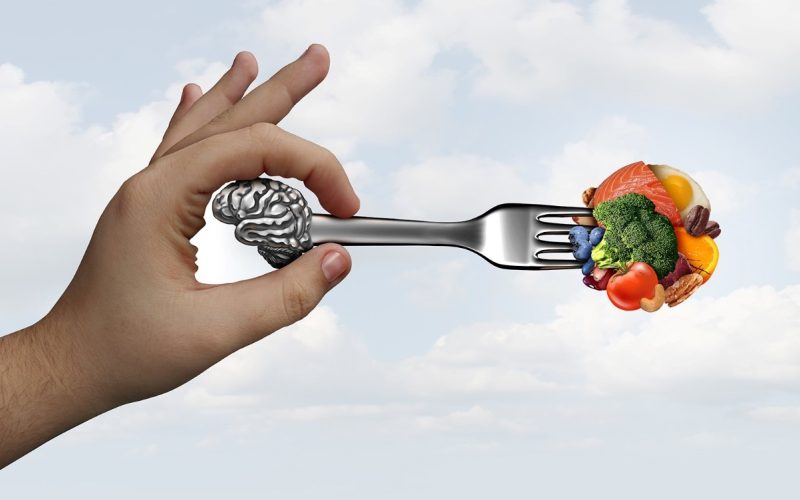In recent years, the connection between nutrition and mental health has garnered significant attention from researchers, healthcare professionals, and the general public alike. As the prevalence of mental health disorders continues to rise globally, understanding the role that diet and nutrition play in mental health management has become increasingly crucial. This article delves into the intricate relationship between nutrition and mental health, exploring how dietary choices can influence psychological well-being and offering insights into nutritional strategies that can support mental health management.
The Gut-Brain Axis: A Critical Connection
One of the foundational concepts underpinning the relationship between nutrition and mental health is the gut-brain axis. This bidirectional communication network links the central nervous system (CNS) with the enteric nervous system (ENS) in the gastrointestinal tract. The gut-brain axis involves various pathways, including neural, hormonal, and immunological mechanisms, which facilitate communication between the gut and the brain.
Emerging research highlights the pivotal role of the gut microbiota— the diverse community of microorganisms residing in the digestive tract—in modulating brain function and behavior. Diet significantly influences the composition and diversity of the gut microbiota, thereby impacting mental health. For instance, diets rich in fiber, prebiotics, and probiotics can promote a healthy gut microbiome, which in turn supports optimal brain function and emotional regulation.
Nutritional Deficiencies and Mental Health
Nutritional deficiencies can have profound effects on mental health. Certain vitamins, minerals, and other nutrients are essential for the proper functioning of the brain and nervous system. Deficiencies in these nutrients can contribute to the development and exacerbation of mental health disorders.
- Omega-3 Fatty Acids: Omega-3 fatty acids, particularly eicosapentaenoic acid (EPA) and docosahexaenoic acid (DHA), are critical for brain health. They play a role in maintaining the structural integrity of neuronal membranes and modulating neurotransmitter function. Research suggests that omega-3 supplementation may alleviate symptoms of depression and anxiety.
- B Vitamins: B vitamins, including B6, B12, and folate, are involved in the synthesis of neurotransmitters such as serotonin, dopamine, and norepinephrine. Deficiencies in these vitamins have been linked to depression, cognitive decline, and other mental health issues.
- Vitamin D: Vitamin D receptors are present in various brain regions, and the vitamin is thought to influence the production of neurotransmitters and neurotrophic factors. Low levels of vitamin D have been associated with an increased risk of depression and seasonal affective disorder (SAD).
- Magnesium: Magnesium is involved in numerous biochemical reactions in the brain, including those related to neurotransmitter release and synaptic plasticity. Low magnesium levels have been linked to anxiety, depression, and other mood disorders.

Dietary Patterns and Mental Health
Beyond individual nutrients, overall dietary patterns play a significant role in mental health. Several dietary approaches have been studied for their potential benefits in managing mental health disorders.
- Mediterranean Diet: The Mediterranean diet, characterized by high consumption of fruits, vegetables, whole grains, nuts, seeds, and olive oil, along with moderate intake of fish and poultry, has been associated with a lower risk of depression and anxiety. The diet’s anti-inflammatory and antioxidant properties, as well as its positive effects on the gut microbiota, are thought to contribute to its mental health benefits.
- Western Diet: In contrast, the Western diet, which is high in processed foods, refined sugars, and unhealthy fats, has been linked to an increased risk of mental health disorders. The Western diet’s pro-inflammatory effects and negative impact on the gut microbiome may underlie its detrimental effects on mental health.
- Plant-Based Diet: Plant-based diets, which emphasize the consumption of plant-derived foods and minimize or exclude animal products, have shown promise in supporting mental health. These diets are typically rich in antioxidants, fiber, and anti-inflammatory compounds, which may contribute to improved mood and cognitive function.
Practical Nutritional Strategies for Mental Health Management
Incorporating specific nutritional strategies into mental health management can be an effective adjunct to traditional treatments such as psychotherapy and pharmacotherapy. Here are some practical recommendations:
- Balanced Diet: Emphasize a balanced diet that includes a variety of nutrient-dense foods. Focus on whole foods such as fruits, vegetables, whole grains, lean proteins, and healthy fats.
- Omega-3 Supplementation: Consider incorporating omega-3-rich foods such as fatty fish (e.g., salmon, mackerel) into your diet, or discuss omega-3 supplementation with a healthcare provider.
- Adequate Hydration: Ensure adequate hydration, as even mild dehydration can negatively affect mood and cognitive function.
- Limit Processed Foods: Reduce the intake of processed foods, refined sugars, and unhealthy fats, which can contribute to inflammation and negatively impact mental health.
- Mindful Eating: Practice mindful eating by paying attention to hunger and fullness cues, eating slowly, and savoring each bite. This can help prevent overeating and promote a healthier relationship with food.
- Professional Guidance: Consult with a registered dietitian or nutritionist who specializes in mental health to develop a personalized nutrition plan that supports your mental well-being.
Conclusion
The role of nutrition in mental health management is a rapidly evolving field with significant implications for individuals and healthcare systems. By understanding the intricate connections between diet, the gut-brain axis, and mental health, we can develop more comprehensive and effective approaches to managing mental health disorders. While nutrition alone is not a panacea, it is a powerful tool that, when combined with other therapeutic interventions, can enhance mental health outcomes and improve overall quality of life.










